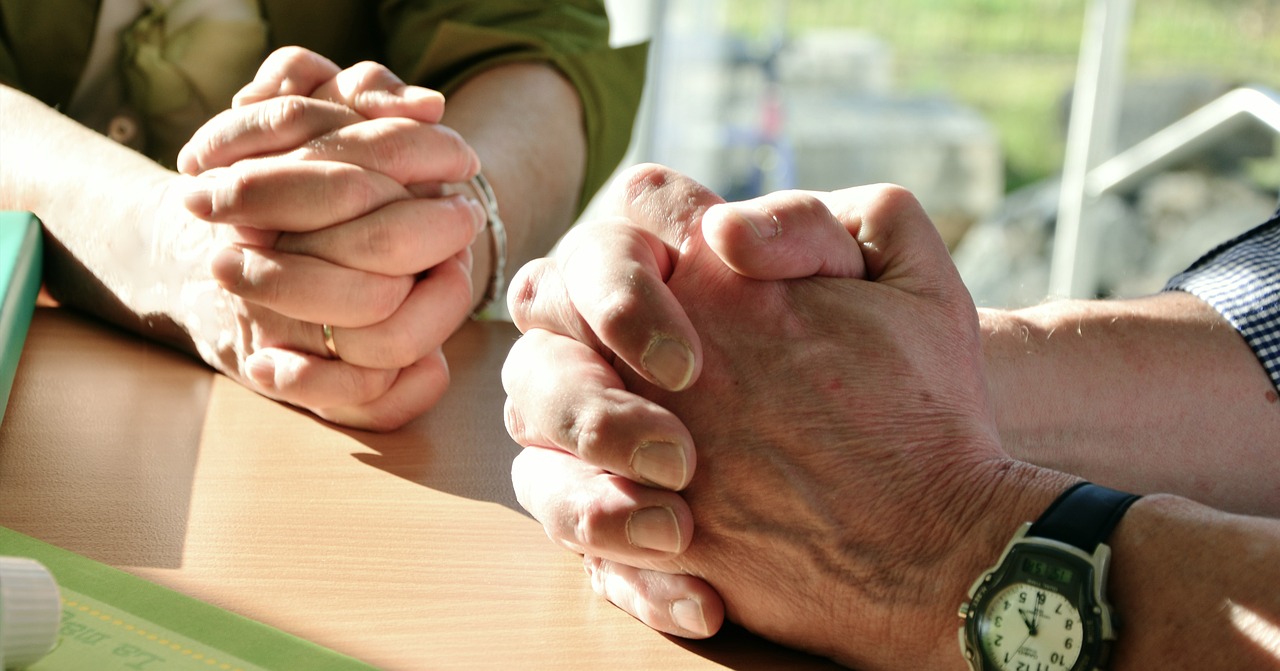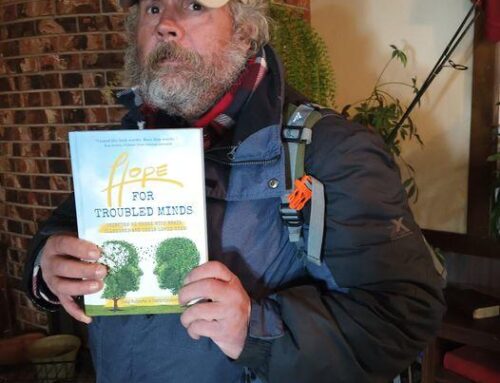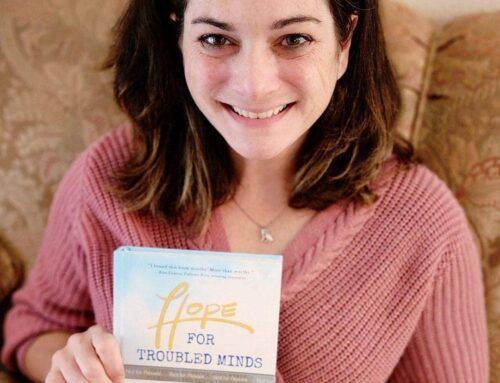Mental illness can be one of the most self-centered ailments there is.
By this I do not mean that people who battle mental illness are necessarily self-centered. No, I mean the illness itself consumes our minds in such a way that we become unable to see beyond the realm of our own emotional pain. This is not our fault. We are not to blame, at least not for the way our minds work. Contrary to what many believe, our aim is not to draw attention to ourselves. This may be the result, but it is not our desire.
One of the worst episodes I’ve had happened on December 1, 2016. I was blindsided from the rear and, in spite of little physical damage, I went into sort of shock. I was taken to nearby hospital. As they tried to transfer me onto a gurney, I became convinced I was paralyzed. They became increasingly frustrated with me and the more they did, the more I came to believe the hospital staff was plotting against me. It was a vicious cycle. I had the presence of mind to know what I needed was my medicine they were denying me and they were restricted from giving me my medication because so many people go to hospitals for drugs who don’t need it. I continued to get worse, abrasive even verbally abusive, until I was admitted to the medical-behavioral unit.
For the next 24 hours, I was the most selfish person I had ever seen. I needed an iPod charge, so I convinced a nurse to let me use her charger. I coaxed a church member to bring me earbuds and expressed dissatisfaction when they weren’t the ones I wanted. I refused to consent to an MRI until they agreed to pipe in my music, and only my music. I was awful. I wasn’t myself. Fortunately, my sister was advocating for me from 500 miles away, assuring the staff that I would get better once I slept and my medication kicked in. It did, and I was tremendously grateful. And more than a bit embarrassed. Ashamed even.
If you have a loved one with a brain disorder such as bipolar, please don’t take it personally when they put their needs before yours. It’s true they may just be being selfish. They may not ever appreciate what you do for them. In many cases, however, it is the illness, not the identity that is expressing itself. Keep pressing forward. Certainly take care of yourself and don’t set yourself up for abuse, but don’t give up either. I have been so blessed in my life to have friends, faith family members, and loved ones, who were there for me even when I failed to appreciate it. Even when I demanded more in spite of all they gave.
So, how does one with a mental illness move beyond the single self-mindedness our brains focus on? One thing I have started doing when I begin to feel weighed down by my own worries is develop a discipline of intercessory prayer. This is simply praying for others. And not just naming people I know, but engaging in a prayer relationship where I ask for their deepest needs. I write these down in a journal and read them aloud when I pray. Then I check back in to see how these prayers have impacted their lives. One example happened around 3 am when I felt miserable about the state of my existence. I sent this message to a woman from my Hope for Troubled Minds group.
Hey Adrienne, I’m devoting time this week to pray for our community members. How can I best pray for you?
Hey Tony, that is incredibly thoughtful. I am am almost at a loss for words. I help care for my Gran 94 and she is bed ridden. I have to pick her up 3 times a day and this morning I am in terrible pain, I pulled a muscle last night in my shoulder blade. She is also getting dementia and hallucinating allot, I battle to deal with it and it scares me. Lockdown is getting to me. Thank you so much for your compassion.
Adrienne, I will certainly pray for you as you care for your Gran. May you find relief from your pain as well as guidance and protection in dealing with her dementia.
{one week later…}
Hey Adrienne, I have been praying for you as you care for your Gran. How are things going?
My injury is fine, depression is lifting and my patience with Gran has improved greatly. Thank you so much Tony.
This is wonderful, Adrienne. Praise God for answered prayer! Do you have any prayer requests this week?
Now, while God answers all prayers, the answers are not always what we want or when they want them. My point here is to highlight not just how prayer changed physical circumstances, but spiritual orientation. Adrienne and I were feeling very much alone in our suffering. God intervened through prayer and brought us together. This hope gave us a measure of healing than impacted our whole selves.
The Swedish philosopher Soren Kierkegaard wrote:
The function of prayer is not to influence God, but rather to change the nature of the one who prays.
When we pray for the healing of others, we escape the prison of our own minds such that healing happens to us as well.
Discover more from Delight in Disorder
Subscribe to get the latest posts sent to your email.







